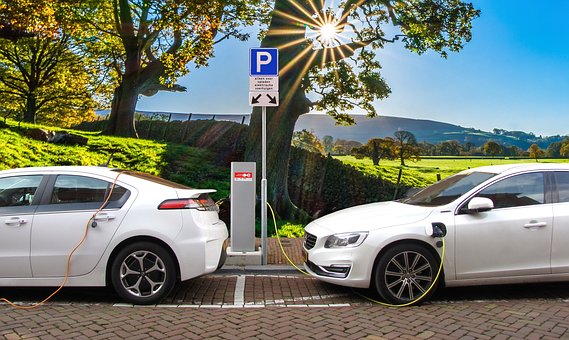New Jersey Board Adopts Requirements for Medium and Heavy Duty EV Charging Programs

The New Jersey Board of Public Utilities on Oct. 23 adopted minimum filing requirements for investor-owned electric utilities to propose charging programs for medium- and heavy-duty, or MHD, electric vehicles and fleet. The requirements call for extensive planning, such as ensuring scalability and effectively managing grid load caused by EV charging.
The filing requirements are amongst several of New Jersey’s initiatives to improve electric vehicle infrastructure, particularly for heavy-duty vehicles like freight trucks. New Jersey’s transportation sector accounts for nearly 40 percent of the state’s net greenhouse gas emissions, with medium- and heavy-duty trucks and buses contributing a disproportionately large share.
The requirements enable utilities to propose incentives for “Make Ready” chargers for public fleets and select private fleets operating in or benefiting overburdened municipalities or communities near Freight EV Corridors. Further, utilities are allowed to offer additional bonus incentives for chargers in overburdened municipalities, communities near Freight EV Corridors, and small businesses.
To support scalable charging with grid capacity in mind, applicants will collaborate with utilities to create and update maps showing where the grid can accommodate MHD charging.
The requirements also outline a framework for proactive planning of public stations over 500 kW, fleets, and multi-unit dwellings. Such planning and technical services will foster early and frequent utility coordination. The board requires electric utilities to effectively plan and manage additional loads on the electric grid resulting from increased EV charging, to reduce chances of power outages or shocks. Electric utilities have 120 days from this order to file their proposals for EV charging programs.
New Jersey is also a part of the Clean Corridor Coalition, along with Delaware, Maryland, and Connecticut. The coalition has secured $250 million from the U.S. Environmental Protection Agency to construct and deploy a regional EV charging network for medium-and-heavy-duty vehicles in the Interstate-95 freight corridor.
EnerKnol Pulses like this one are powered by the EnerKnol Platform—the first comprehensive database for real-time energy policy tracking. Sign up for a free trial below for access to key regulatory data and deep industry insights across the energy spectrum.
ACCESS FREE TRIAL